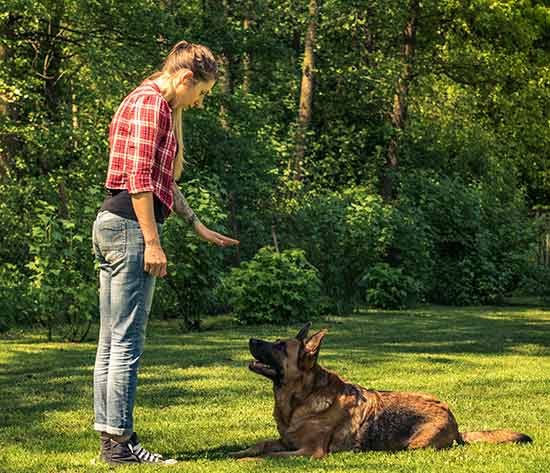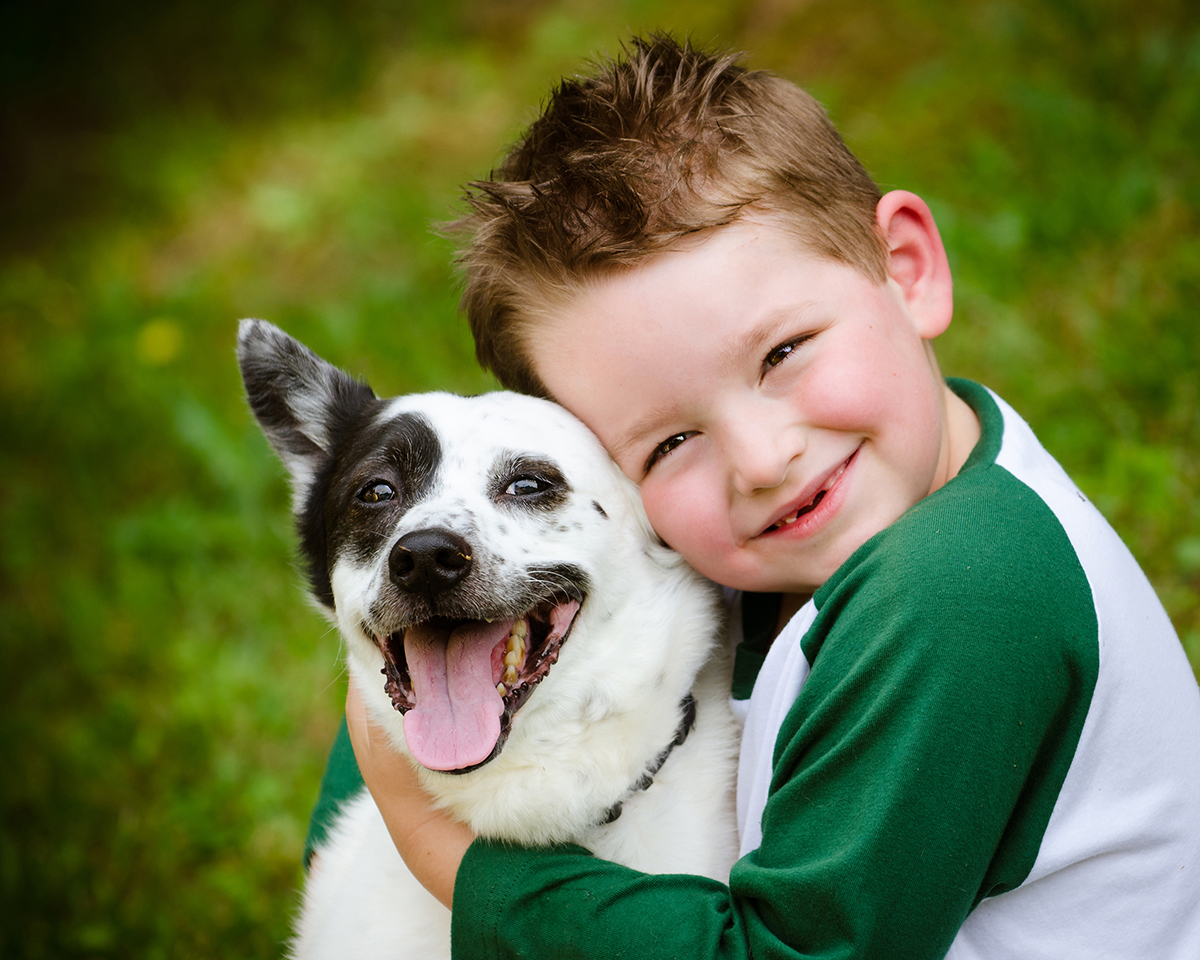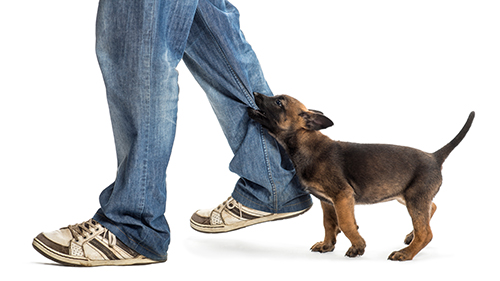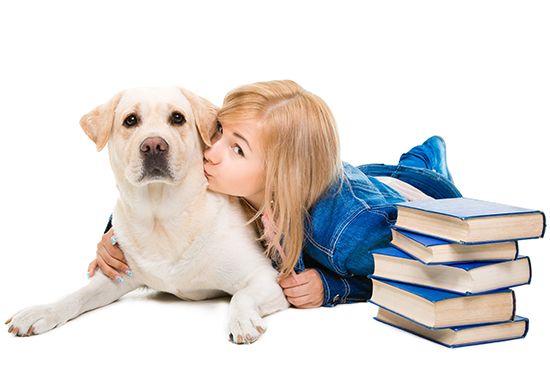 Training your dog is celebrated in January by National Train Your Dog Month, founded by the Association of Professional Dog Trainers. Their goal is to promote awareness of the importance of the benefits of socialization and manners training for the family dog. January was chosen for this campaign in response to the practice of giving animals as presents during the holidays. Statistics unfortunately report that at least half of animals given as gifts are placed at a shelter or foster home facility within 3 months.
Training your dog is celebrated in January by National Train Your Dog Month, founded by the Association of Professional Dog Trainers. Their goal is to promote awareness of the importance of the benefits of socialization and manners training for the family dog. January was chosen for this campaign in response to the practice of giving animals as presents during the holidays. Statistics unfortunately report that at least half of animals given as gifts are placed at a shelter or foster home facility within 3 months.
The most common reason given for any dog to be surrendered to a shelter is a socialization or behavior problem. But had these pets received basic obedience training and manners, most of the cited issues could have been resolved. And the worst part is that dogs lose their homes, families, security and even their lives because their owners didn’t make an effort to help them learn how to behave as expected.
Whitworth Animal Clinic, providing veterinary services to pets from Madison, Huntsville, and the surrounding Madison County areas, promotes training your dog with everyday manners with positive enforcement techniques, and emphasizes owner participation. And “hats off” to pet parents who have made a New Year’s resolution to embark on enriching their canine companion’s life with an education in etiquette.
What are the Benefits of Basic Dog Training?
There are many positive benefits associated with training your dog:
◊ It strengthens the bond between yourself and your pet;
◊ It creates a positive relationship and establishes you as the pack leader;
◊ It helps you gain an understanding of your pet’s behaviors;
◊ Dogs tend to be routine oriented and thrive on a daily routine;
◊ It increases not only the safety of your pets, but also ensures good manners when introduced to guests and encounters out in public, as well as family members;
◊ It can decrease daily stresses;
◊ Overall it makes life with your dog more enjoyable.
The Acclimation Period and Beyond
Most people who have dogs have not provided basic etiquette training for their canine family member. For a dog, there is a general cycle of assimilation into a new environment that would transition much more smoothly with the assistance of basic manners training. When the dog first enters a family’s life, their behavior is usually based on their adjustment from their past environment to the new family and lifestyle. While they view their new setting and figure out where in this “pack” they blend in, the dog may exhibit quiet, calm and subdued, behavior. This behavior may not reflect their true personality or breed characteristics.
Usually the dog will feel more comfortable in the household as the adjustment period terminates. By this time the dog has figured out the basic house rules, the daily schedule, and the people in the new family. This is when their real personality may emerge, and so might new, not so desirable behavior traits. Some dogs may begin to test out their position in the family pack, and may exhibit “bad” behaviors (like chewing, digging, having accidents, barking, jumping on people or furniture, possessiveness over toys or food, aggressively being protective of their “domain”). Although some of these behaviors may actually reflect the dog’s real personality, the new owners may be caught off guard and not know how to deal with what appears to be an out of control animal.
Why Train the Family Dog?
What needs to be made clear to all dog owners is: in the great majority of circumstances undesirable behavior is not the dog’s fault – it’s simply that they’ve never been taught how to properly behave. If they don’t know what is expected of them, and what behavior is inconsistent with the desired behavior, they won’t know why their conduct is unacceptable. Just saying “no” doesn’t always register the connection, especially if the term is used constantly. And the fact is… most people don’t know how to effectively and compassionately train their dogs to be well mannered and a cherished part of the family “pack”. But dogs aren’t born knowing house rules and the principles of canine etiquette. So how do they learn if no one ever teaches them? You guide your children in a kind, positive, and consistent manner to help them learn how to fit into society, so why shouldn’t dogs receive the same quality of guidance to integrate well into their environment?
All Dogs Can Learn Manners
It is in most dogs’ nature to want to make their people pleased with them. The ultimate goal is to embark upon training to teach the dog what is accepted conduct rather than unsuitable habits. All dogs are capable of learning. The key is patience, being firm in what you expect from the dog, and offering praise for appropriate behaviors. But, on the flip side, constant praise for exhibiting the expected behavior can confuse them. Please only employ a dog training method that uses positive reinforcement. Dogs won’t understand methods that use frightening them into complying with household obedience commands, or deliberate cruelty or punishment for non-compliance. That can only lead to further problematic behavior.
You do need to instill into your dog that you are the pack leader, but the process should be based on trust and love – not fear and pain. You will establish trust by communicating with your dog through body language and a daily routine. Those are things a dog understands. Whitworth Animal Clinic recommends the “How to Talk Dog” training system. The philosophy behind this approach is training people to train their dogs. How to Talk Dog™ House Calls visits your home in order to train your dog in their actual environment. They can determine the behaviors that you want to modify and guide you through training techniques appropriate for your situation.






